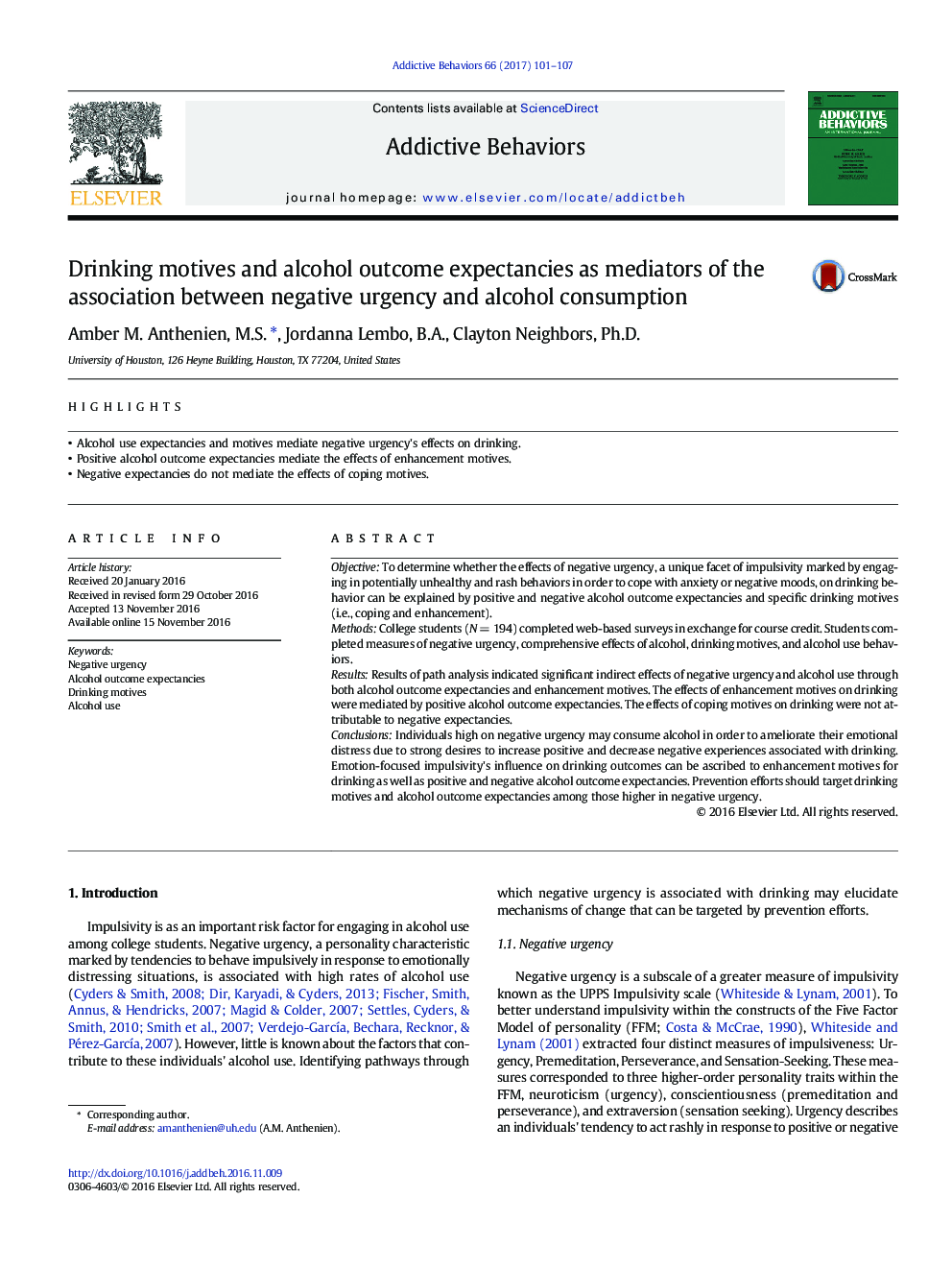| Article ID | Journal | Published Year | Pages | File Type |
|---|---|---|---|---|
| 5037865 | Addictive Behaviors | 2017 | 7 Pages |
â¢Alcohol use expectancies and motives mediate negative urgency's effects on drinking.â¢Positive alcohol outcome expectancies mediate the effects of enhancement motives.â¢Negative expectancies do not mediate the effects of coping motives.
ObjectiveTo determine whether the effects of negative urgency, a unique facet of impulsivity marked by engaging in potentially unhealthy and rash behaviors in order to cope with anxiety or negative moods, on drinking behavior can be explained by positive and negative alcohol outcome expectancies and specific drinking motives (i.e., coping and enhancement).MethodsCollege students (NÂ =Â 194) completed web-based surveys in exchange for course credit. Students completed measures of negative urgency, comprehensive effects of alcohol, drinking motives, and alcohol use behaviors.ResultsResults of path analysis indicated significant indirect effects of negative urgency and alcohol use through both alcohol outcome expectancies and enhancement motives. The effects of enhancement motives on drinking were mediated by positive alcohol outcome expectancies. The effects of coping motives on drinking were not attributable to negative expectancies.ConclusionsIndividuals high on negative urgency may consume alcohol in order to ameliorate their emotional distress due to strong desires to increase positive and decrease negative experiences associated with drinking. Emotion-focused impulsivity's influence on drinking outcomes can be ascribed to enhancement motives for drinking as well as positive and negative alcohol outcome expectancies. Prevention efforts should target drinking motives and alcohol outcome expectancies among those higher in negative urgency.
